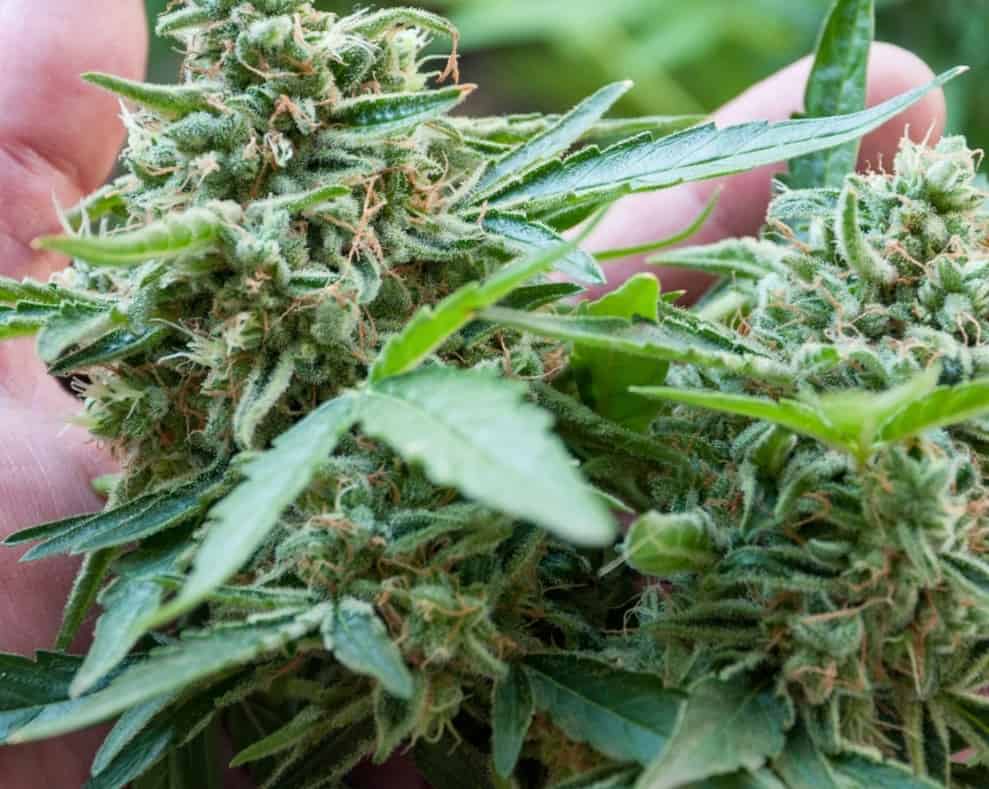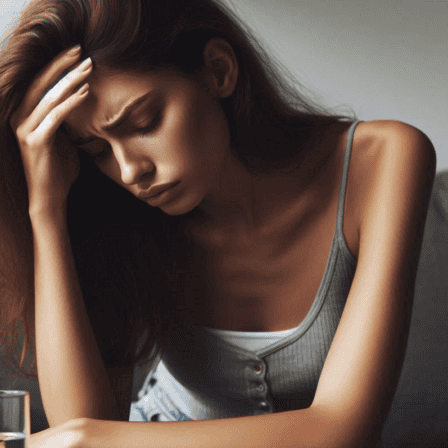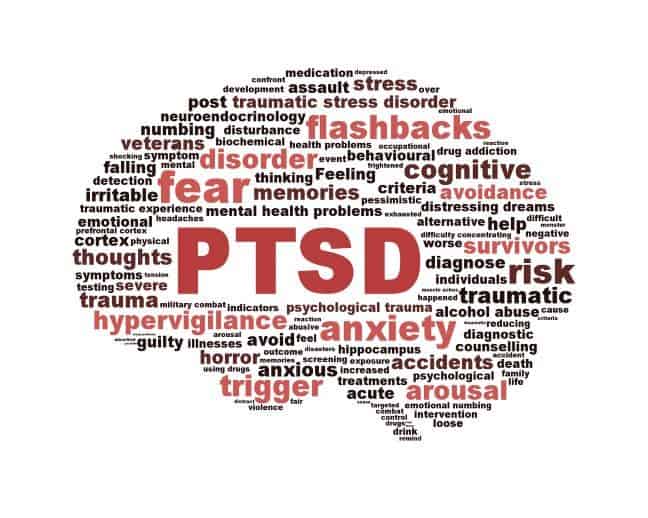Exploring Cannabis for PTSD in Florida: Turn Trauma into Growth
Many folks are using medical cannabis for PTS and PTSD in Florida. It is estimated one of every 13 Americans has PTSD (post-traumatic stress disorder). If you are one of these, have you ever thought of using cannabis for your PTS symptoms? Grass is now the center of an innovative PTS treatment based on post-traumatic growth. In this article, we look at the details of using legal pot for PTS healing and growth.
We will walk through the following topics:
- The Basics: Assessment, Symptoms, and Types of PTSD
- What the Studies Say About Cannabis for PTS
- Best Cannabis Strains for PTS and Anxiety
- Medical Weed for PTSD and Psychosis Treatment
- How It Works: Growth-Based PTSD Therapy
- Getting Started with Medical Cannabis for PTS and Post-Trauma Growth
"Approximately 8.7 percent of all adults—1 of 13 people in this country—will get PTSD in their lifetime."* PTSD is a stress-related disorder that stems from a range of traumatic events. Classic triggers are natural disasters, war, or serious accidents. PTSD can also start from mental, sexual, or physical abuse.
How Do I Know if I Have Post Traumatic Stress Disorder?
The American Psychiatric Association (APA) lays out specific facts. These are their PTSD diagnostic criteria:
- You've had exposure to a traumatic event
- You regularly try to avoid things that remind you of the trauma
- Patients often relive the trauma event
- You often stay "on edge" with heightened senses such as alertness
- The disturbance causes problems with your social and workplace functions
- Your PTS signs have lasted longer than one month
Do I Have PTSD Symptoms?
Signs of PTS can vary in degree. They often cause substantial distress and problems with function. Patients may become depressed, anxious, or engage in substance abuse. Thoughts of suicide or suicidal impulses are a severe problem. These thoughts are in addition to other physical, memory, and mental health problems. Being sad or anxious further strengthens PTS symptoms. PTSD causes fearful reactions to traumatic events of the past. These emotions take you back to that unpleasant time. For instance, survivors of a bad weather event can get symptoms from a coming storm.
The Four Main Classes of PTSD Symptoms
The APA describes usual PTSD symptoms.
- Intrusive thoughts such as vivid, distressing dreams and flashbacks.
- Avoiding things that evoke trauma thoughts or talking/thinking about what happened.
- Having negative thoughts and feelings, such as harshly judging oneself or others.
- Arousal and reactive symptoms.
In addition to harmful thoughts and feelings, PTS may cause physical symptoms. Here, the mind is having a bad influence on your body. A two-way relationship exists between mental and physical states. Psychic conflict and stress from PTS can lead to clear physical conditions. These symptoms include a faster heartbeat, higher blood pressure, and fatigue. Headaches, inflammation, or muscle tension may also be present. Besides, nausea, sleep problems, and different types of pain may occur.
The PTS trauma-related pain acts much like anxiety or sadness. It may serve as a trauma reminder and, in turn, may worsen symptoms of PTS. A two-way relationship exists between inflammation and PTS. Is there a relationship between medical herbs and PTS treatment?
Roots of Medical Cannabis for PTS in Florida
Reducing anxiety is a common factor. Survivors of trauma have used cannabis for PTS for some time now. Mainly, weed (distinctly CBD) serves as a natural PTS treatment. It helps to control intrusive memories and thoughts. Combat veterans, weather survivors, and trauma victims use cannabis for PTS.
Patients with PTSD have altered levels of CB1 receptors and cannabinoids in the blood. The imbalance may contribute to heightened arousal and other PTSD signs. Medical cannabis targets PTSD signs in the brain/body.
What the Studies Say About Medical Weed for PTS
The full-spectrum flower contains terpenoids and other CBD chemicals. CBD is the non-heady component of weed. These compounds act in synergy with THC to counteract the 'high.' They fight against the potential adverse side effects of THC. This relationship bolsters anxiety and depressant-fighting properties. Herbal synergy enhances the oxidant-fighting strength of the whole cannabis flower.
Marijuana reacts with and activates the CB-1 receptors. This activation makes weed a good holistic medicine option in PTSD treatment. These CB1 receptors play a role in helping trauma-related thoughts. They reduce fear-related anxiety and improve one's stress response. They also help sleep quality and support re-learning emotion-laden memories and imagery.
A 2018 review of medical cannabis for PTSD treatment summarized years of research. It shows how the "entourage effect" of THC, CBD, and other compounds in activated weed helps to:
- Reduce irritability, agitation, and hyper-vigilance.
- Lessen the strength and emotional impact of traumatic, stress-induced imagery.
- Improve sleep time and sleep quality, and combat sleeplessness.
- Prevent extreme stress responses and increase stress coping behaviors.
- Balance natural serotonin levels to help with severe sadness and suicidal impulses.
- Cut back the intensity of nightmares in PTSD patients with treatment-resistant nightmares.
- Enhance relief from trauma by reducing conditioned fear responses, inflammation, and pain.
- Mitigate PTSD flashbacks, panic attacks, and self-mutilation.
What are the Best Pot Strains for Anxiety and PTSD?
CBD-dominant cannabis strains are mainly non-psychoactive. The cannabis strains with more CBD and less THC were better strains for PTSD and anxiety. Why? They were CBD-heavy strains with a low amount of THC. These strains:
- Fix abnormal brain activity, which helps reduce psychosis, anxiety, and sad mood.
- Uplift your mood without being "stoned."
- Strengthen cognitive performance and reduce memory deficits.
- Afford anti-inflammation properties for folks who have PTSD with pain.
- Regulate abnormal sleep-wake cycles. This regulation helps patients with PTSD, anxiety, and chronic pain.
- Enhance sleep quality and amount of sleep. This enhancement helps support daytime alertness and reduces fatigue.
So what's better: Indica or Sativa for PTS?
The Sativa strain relaxes with the benefit of a mild hypnotic. Cannabis high in CBD makes the best strains for PTSD and anxiety. For PTSD patients with sleep problems, the more CBD, the better your rest.
Cannatonic is a high-CBD hybrid of MK Ultra and G13 Haze. It is a 50% Indica-Sativa mix. This CBD-heavy strain does not affect your body and psyche like many hybrids. The blend is unique in that it helps you feel relaxed and raises your mood at the same time.
THC with Indica-heavy strains helps with sleep. They also help with nightmares related to PTSD and improve the short-term sleep cycle. On the contrary, high THC strains can disrupt overall sleep quality and health. Patients using THC over the long term see more adverse effects.
Studies to review cannabis for PTS are currently ongoing. Their highly awaited findings will help us discover the best strains to grow for PTS.
Medical Cannabis for PTS and Psychosis Treatment
The symptoms of psychosis, such as visions, often coexist with PTSD. The Journal of Molecular Psychiatry published a 2018 study. Researchers found a marked genetic overlap between schizophrenia and PTSD. Schizophrenia is a common type of psychotic disorder.
An earlier study looked at 32 people with a psychotic disorder. It found that 53% of them also had symptoms of PTSD. The study also found those with the worst trauma saw the worst PTSD symptoms and psychotic. It suggests that trauma induces both PTSD and psychosis. At the same time, treating PTSD may provide antipsychotic benefits.
Cannabidiol is well-known as a non-mind-bending and natural treatment for psychotic symptoms. A study in Translational Psychiatry shows that CBD assists the endocannabinoid anandamide. Therefore, it plays a role in decreasing psychosis and improves treatment results.
The cannabinoid THC, on the other hand, has the reverse effect. It can make psychosis and PTSD symptoms worse. The Journal of Neuropsychopharmacology reviewed pot and PTSD in 2016. The study saw that frequent daily use of high THC strains could increase the odds of developing psychosis. PTSD patients with specific genetic traits that heighten the response to stress and trauma are at a higher risk.
Some PTSD patients with psychotic illness consume high THC strains. These patients may have a poorer prognosis than those who refrain from high THC strains. Having PTSD, psychosis, and schizophrenia is more complicated. It's best to find an expert doctor up-to-speed on all treatment options.
Theory Behind Growth-Based PTSD Therapy
Solely relying on weed for PTSD is not in itself a complete treatment.
Adding cannabis for PST as mental health treatment is effective. This approach gives a much better PTSD treatment outlook for both mild and severe PTSD. It should be an option for patients not responding to either approach alone.
There are new approaches to PTSD treatment in formulation. They focus on raising human experience beyond just helping the symptoms of PTS. In addition to lowering stress, knowing one's response to trauma is an essential factor. Accepting growth as part of cognitive-behavioral PTS treatment focused on post-traumatic growth.
Treatments like a medical cannabis for PTSD symptoms are only one piece of the puzzle. Effective treatment of PTS requires positive emotions and healthy friendships. In addition, engagement, meaning, purpose, and gratitude are necessary. Being mindful of a positive outlook is helpful.
How to Start Using Medical Cannabis for PTS & Post-Traumatic Growth
Having long-term PTSD speeds up aging and raises your chances of several health concerns. Drugs are a standard first line of defense when it comes to mental health diseases. Doctors rely on them for PTSD, psychosis, anxiety, and bouts of sadness. Despite their efficacy in fighting depression and psychosis, there are many side effects. Patients also commonly use anti-seizure drugs, benzos, and synthetic PTSD drugs.
We must slow the downward spiral of PTSD, a first step in reducing the impact of its symptoms. Moving closer to post-traumatic GROWTH is the measure of success. We need to cultivate a state of mindfulness to attain a state of mental and physical well-being. Mindfulness for enabling life problems is essential.
Find a weed doctor to help you get the most out of life. Truly thriving is the key to achieving sustained PTSD relief. If you experience traumatic events and take prescription drugs for flashbacks or disturbing thoughts, help is here. If you have PTS as one of your health conditions and think you will qualify for a medical cannabis card.
*https://www.sidran.org/wp-content/uploads/2018/11/Post-Traumatic-Stress-Disorder-Fact-Sheet-.pdf
Are you a veteran, hurricane victim, or trauma survivor? In Miami, if you have PTSD, we may be able to help. Let us help you down the path of healing. Please schedule an appointment at our cannabis clinic today. We're at 649 NE 79th Street. Our doctors are experts in the safe use of legal cannabis for PTS. We can point you in the right direction for post-traumatic GROWTH.
For more info:




Comments are closed.